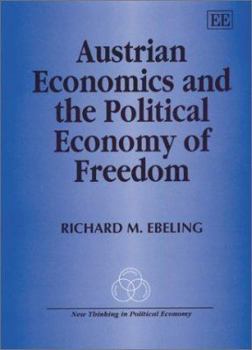Austrian Economics and the Political Economy of Freedom (New Thinking in Political Economy)
He shows the continuities between the positive contributions of the classical economists and the Austrian's in contrast to the neoclassical conceptions of man, the market economy and theory-formation for policy applications. Particular emphasis is given to the Austrian view of the human actor as creative innovator and planner who changes his world to improve his circumstances in comparison to the neoclassical idea of man as a passive economizer within given constraints. The Austrian approach is applied to the problems of the regulated economy, socialist central planning, the welfare state, monetary policy, international trade, and the hundred-year conflict between classical liberalism and collectivism.
Economists, historians of thought and policy analysts will find this collection of essays illuminating.





